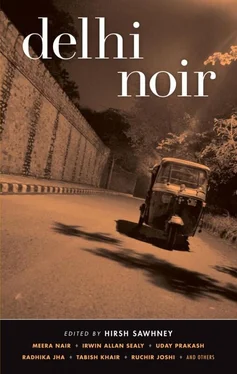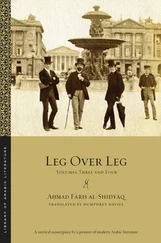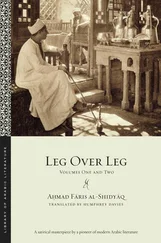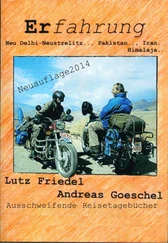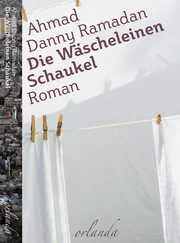Omair Ahmad - Delhi Noir
Здесь есть возможность читать онлайн «Omair Ahmad - Delhi Noir» весь текст электронной книги совершенно бесплатно (целиком полную версию без сокращений). В некоторых случаях можно слушать аудио, скачать через торрент в формате fb2 и присутствует краткое содержание. Город: New York, Год выпуска: 2009, ISBN: 2009, Издательство: Akashic Books, Жанр: Детектив, на английском языке. Описание произведения, (предисловие) а так же отзывы посетителей доступны на портале библиотеки ЛибКат.
- Название:Delhi Noir
- Автор:
- Издательство:Akashic Books
- Жанр:
- Год:2009
- Город:New York
- ISBN:978-1-933354-78-1
- Рейтинг книги:3 / 5. Голосов: 1
-
Избранное:Добавить в избранное
- Отзывы:
-
Ваша оценка:
- 60
- 1
- 2
- 3
- 4
- 5
Delhi Noir: краткое содержание, описание и аннотация
Предлагаем к чтению аннотацию, описание, краткое содержание или предисловие (зависит от того, что написал сам автор книги «Delhi Noir»). Если вы не нашли необходимую информацию о книге — напишите в комментариях, мы постараемся отыскать её.
Brand-new stories by
Delhi Noir — читать онлайн бесплатно полную книгу (весь текст) целиком
Ниже представлен текст книги, разбитый по страницам. Система сохранения места последней прочитанной страницы, позволяет с удобством читать онлайн бесплатно книгу «Delhi Noir», без необходимости каждый раз заново искать на чём Вы остановились. Поставьте закладку, и сможете в любой момент перейти на страницу, на которой закончили чтение.
Интервал:
Закладка:
The driver came out with a filthy old blanket which he threw to me. “Cover yourself,” he said roughly.
“I thought you couldn’t speak,” I said, grabbing it. Then I added, “Hey, this is filthy, give me something else. I could get leprosy or something from this.”
“Shut your filthy mouth,” he replied.
I was taken into a reception area where a rather bored policeman fingerprinted me.
“Why are you fingerprinting me? I’m not a criminal. The criminal is out there somewhere, wearing my clothes. I’m a victim,” I protested.
“We fingerprint everyone,” the man across the desk replied laconically.
The fat policeman who’d brought me in said, “He’s dangerous, this one. Got a big mouth. The boss wants him kept carefully. He’s probably a Muslim terrorist.”
I was led down a corridor, my hands handcuffed behind my back, then down some stairs into another dark, featureless corridor that smelled of toilet. We came to a cell and the policeman fished out his keys and threw me in. The blanket slipped off my shoulders and I was naked again. There was no one else in the cell — I was alone.
I don’t how time passed. When someone eventually came, I had lost all track of it. Time and clothes. The two were closely related in this case. The brother who had stolen my clothes had stolen my watch as well, the bastard. It was a Seiko. A final gift from my wife.
The interrogation began. I was tied to a rope, which was tied to a loop in the ceiling that must have once held a fan. They beat me with their belts.
“Who are you?” they asked.
“I already told you! It’s in your register!” I shouted.
“Are you a terrorist?”
“You crazy? I’m a businessman, a CEO. You’re making a big mistake. I came willingly, I’m a victim. You’ll pay for this.” Already I felt less certain. No clothes, no watch, no wallet. Even I didn’t believe myself.
The beating went on for a while. I stopped speaking. They quit when they grew tired. Beating someone is an exhausting job, like manual labor, I guess. And none of them were in good shape.
One peed into a bucket of filthy water and the other threw it over me. They left.
I shivered in the dark and began to sneeze.
Much later I was fed some stale chapattis and a bowl of watery daal. Then I was given a pail and a filthy rag and told to clean the cell. After the cell, they made me clean the toilets.
I’d never cleaned a toilet in my life, and I didn’t do a very good job of it. But they didn’t care. The idea that they’d made me, a Brahman, clean their toilet was what really pleased them. No one really cared if their toilets were dirty, they just wanted to see me, a “sahib,” cleaning them. It proved what I had always believed, that India is a country of ideas, not actions.
As I was working on the last one, there was a commotion outside — sirens, lights, agitated footsteps. “Sonia Gandhi, Sonia Gandhi,” someone called. The place emptied. The man who was supposed to be guarding me ran too. I followed him, not wanting to be alone with the rats, and arrived at the front door just in time to see a convoy of Maruti jeeps racing away from the station. I simply walked out after them. No one stopped me. It wasn’t even dark.
On the street, the cars were still packed like sardines. I dodged between them, not giving them a second glance, until I came to the red light under the flyover where the policemen had picked me up that morning. I saw a bus in front of me and leapt inside.
At first no one reacted. The people in the last seats in back looked at me in surprise when I got in, then quickly turned away, confirming my belief that naked, I was not impressive. But there were too many of them to be scared. I was simply not their problem, I was the ticket collector or conductor’s problem. They stared stonily in front of them just like the drivers of the cars had.
The bus was fairly crowded. Not packed like the Delhi Transport Corporation buses, but profitably full, like the privately owned bus lines always managed to be. The aisles held a decent number of standing passengers, the conductor somewhere in the middle. The moment he saw me he came charging toward me with all the aggression of a raging bull.
“Get out of the bus,” he said without preamble.
I ignored him, staring longingly at his jacket, a cheap Chinese windbreaker with London Fogg written in red.
“I said I want you off the bus,” he repeated, puzzlement creeping into his eyes.
“Why? Can’t you at least let me stand on the step? I’ve been robbed, my clothes have been stolen. I need to get home. I’ll get off soon.” My voice came out all thin and whiny. Not at all like my usual confident foghorn.
“I don’t care. You just get off the bus or I’ll throw you off,” the conductor said loudly. Other passengers turned around to look.
“You should be ashamed of yourself. Letting innocent ladies see you like this,” an older man, a government clerk — type, told me.
“I am, I am. Give me your clothes then, I’m sure you have more,” I replied.
A murmur of disapproval passed through the crowd.
“Hey, hey. Just joking. I’m getting off at the next stop, promise,” I said placatingly.
Hearing this, the conductor leaned out a window and banged hard on the side of the bus. But the driver didn’t react. He’d just built up a head of speed which he wasn’t going to lose till the next scheduled stop.
Now it was my turn to smile and the bus conductor’s to feel stupid.
“Have you no shame? Get off this bus now,” he ordered.
“But how can I? The bus is moving. Have you no pity?”
“Pity-shitty chodo, that’s not my problem. You cannot be in this bus without a ticket, that is all.”
We’d just passed the Lodhi Road Crematorium at this point, and I was hanging onto the railing on the top step when the bus came to a crashing halt, squealing brakes and all. We peered out of the windows to see what had happened, expecting to see a dead man.
And that is exactly what we saw — but not quite as freshly dead as we expected.
A dead man was crossing the street along with an enormous cortege of the living, that’s why the driver had been forced to stop. Inside the bus, everyone’s lips began to move in prayer and fingers clutched at lucky charms hidden under shirts and sari blouses.
I had an idea. The dead were generous people. They didn’t need their clothes.
The bus began to move slowly. I didn’t wait. I leapt off it and joined the marchers. They pretended not to notice me, or perhaps they were so lost in their grief that they really didn’t care about the naked man in their midst. Or perhaps death made them look at such things in a more tolerant, philosophical light.
As soon as I was through the gates, I was quite literally pushed aside by an even larger mass of mourners who had obviously been waiting for the deceased. Must have been an important man, I thought. But he was dead now. Luckily for me, he wasn’t getting an electric cremation, for then I would have lost the clothes. Instead he was being given the full treatment, with priests and incense and oil and wood. I climbed a nearby tree and watched.
Beneath me, the cremation ground was a sea of white. The man’s family, who’d been standing at the entrance greeting everyone, arrived — two sons in their forties, and a sister or wife who took one look at the body on its bed of wood and fainted.
The sea of white parted as the woman was carried away. The pundits began to mumble and the sons, their flabby bodies pale in the smoggy light, began to throw ghee on the pyre. The smell made me hungry and sick at the same time and I wished they’d hurry up. I watched the cloth anxiously. If my calculations were right, while the top cloth would be a goner, the sheet on which the body lay would be all right.
Читать дальшеИнтервал:
Закладка:
Похожие книги на «Delhi Noir»
Представляем Вашему вниманию похожие книги на «Delhi Noir» списком для выбора. Мы отобрали схожую по названию и смыслу литературу в надежде предоставить читателям больше вариантов отыскать новые, интересные, ещё непрочитанные произведения.
Обсуждение, отзывы о книге «Delhi Noir» и просто собственные мнения читателей. Оставьте ваши комментарии, напишите, что Вы думаете о произведении, его смысле или главных героях. Укажите что конкретно понравилось, а что нет, и почему Вы так считаете.
